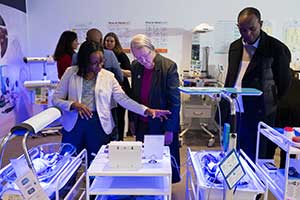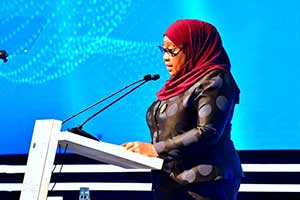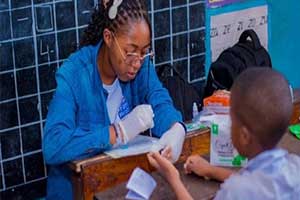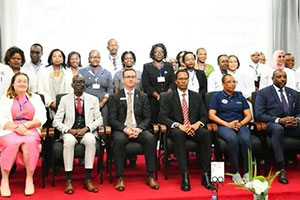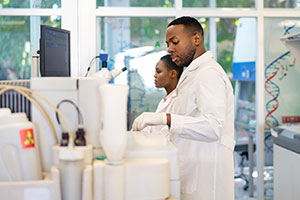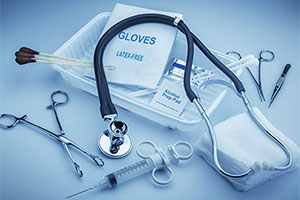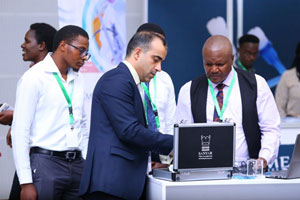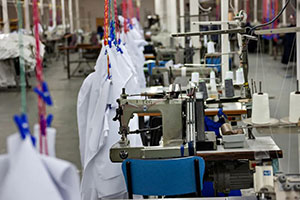This summer, Rice University President Reginald DesRoches traveled to Africa with co-director Maria Oden of the Rice360 Institute for Global Health Technologies and supporters of Rice360 to commemorate important turning points in the effort to eradicate avoidable neonatal deaths in the sub-Saharan area. This tour represented Rice’s ongoing participation in the Newborn Essential Solutions and Technologies (NEST360) international partnership, of which it is one of 22 organizations.
The crew first visited Malawi, where hospitals in all 28 districts had adopted the NEST360 bundle. From there, they proceeded to Tanzania. Mwananyamala Hospital, one of seven primary care, Level 2 hospitals designated as a NEST360-implementing site during Phase 1 of the program in Tanzania, was the first stop on the itinerary.
Next, the party drove to Ubungo Hospital, a prospective NEST360-implementing site, where DesRoches, Tanzanian Ministry of Health personnel and key local and international partners participated in a ceremonial gathering marking the opening of Phase 2.
DesRoches remarked, “It is truly my distinct honor to be here today to celebrate the launch of NEST360 Phase 2 and the commitment to increased newborn survival in sub-Saharan Africa.” NEST360 has shown that it is willing to collaborate with regional governments. “You need to work together and form partnerships in order to solve the most important problems facing the planet. Developing technology in the lab is one thing, but problems won’t be sufficiently resolved if you don’t have collaborations that comprehend societal, cultural, and economic challenges.”
In order to improve quality and learning among the nation’s partners in newborn and maternal health care, NEST360’s Phase 2 goals include delivering and maintaining life-saving innovations, giving health workers practical education, and using data for action. In keeping with its efforts to lower the number of neonatal deaths, the Tanzanian government announced during the Phase 2 launch that it would spend an extra $7.1 million to upgrade the facilities of newborn wards in 25 hospitals spread across four mainland regions and three hospitals in Zanzibar. According to Dr. Felix Bundala, assistant director of newborn, child, and adolescent health at Tanzania’s Ministry of Health, the country “plans to spend over $50 million on infrastructure, equipment, and capacity building for newborn care” over the course of the following three years.
Tanzania has substantially lowered maternal and infant mortality rates in recent years thanks to concentrated efforts to upgrade its healthcare system. Dr. Grace Magembe, deputy secretary general of Tanzania’s Ministry of Health, gave a statement at the launch citing two notable examples of successful government initiatives advancing strategic national interests and global sustainability goals: an 80% decrease in maternal deaths and a 36% decline in mortality for children under five.
The largest public hospital in Tanzania, Muhimbili National Hospital, three regional referral hospitals, including Mwananyamala, and numerous facilities in rural areas implemented a package of evidence-based, locally relevant interventions for small and sick newborn care in Phase 1. This package was developed by NEST360 and the Ministry of Health.
The Muhimbili neonatal care units had less congestion thanks to these extra NEST360-implementing sites. In this hospital, it was usual to discover one baby cot with six or seven babies before NEST360 was implemented; however, as of right now, “one baby cot is for one baby,” according to Magembe.
Present at the ceremony were representatives of major NEST360 partners in Tanzania, including as Rice360, Dar es Salaam Institute of Technology (DIT), Ifakara Health Institute, and MUHAS, in addition to leaders from Rice and Tanzanian government authorities.

